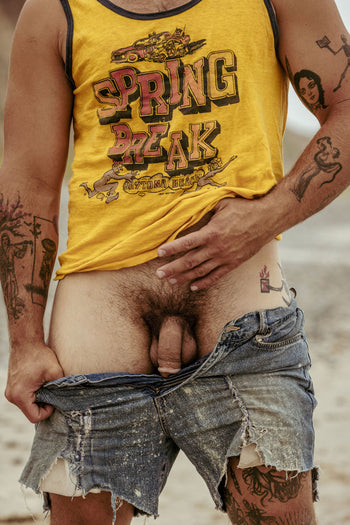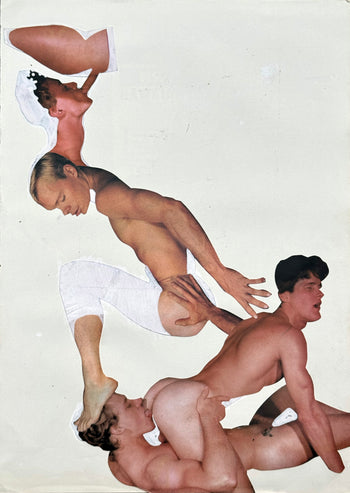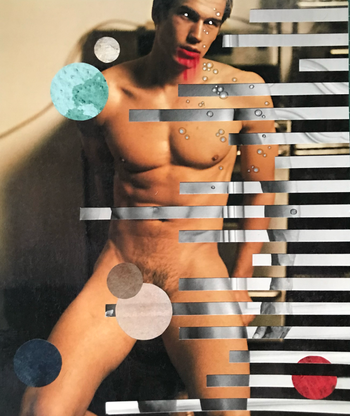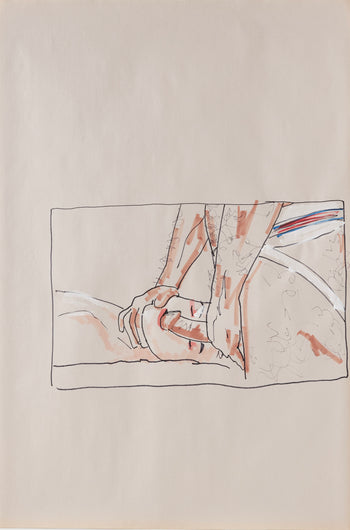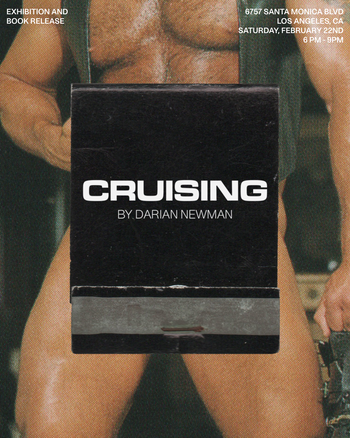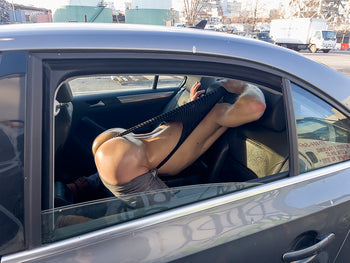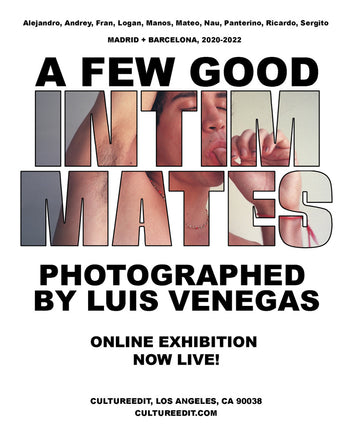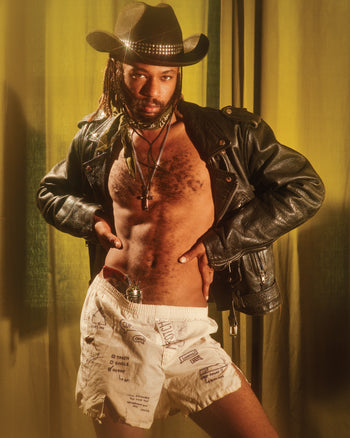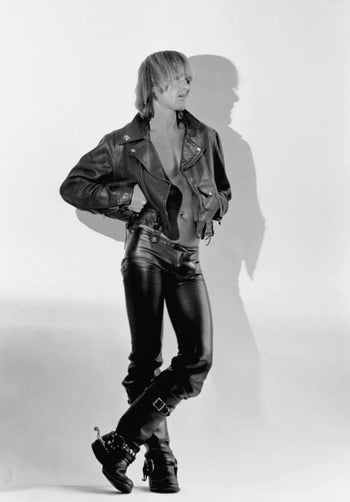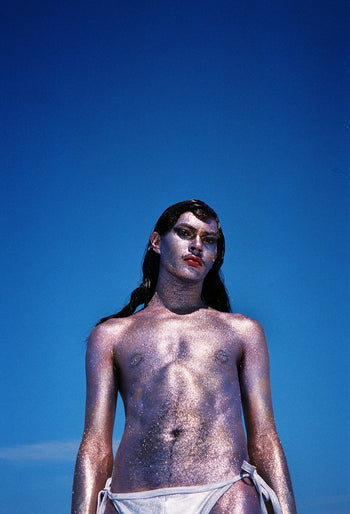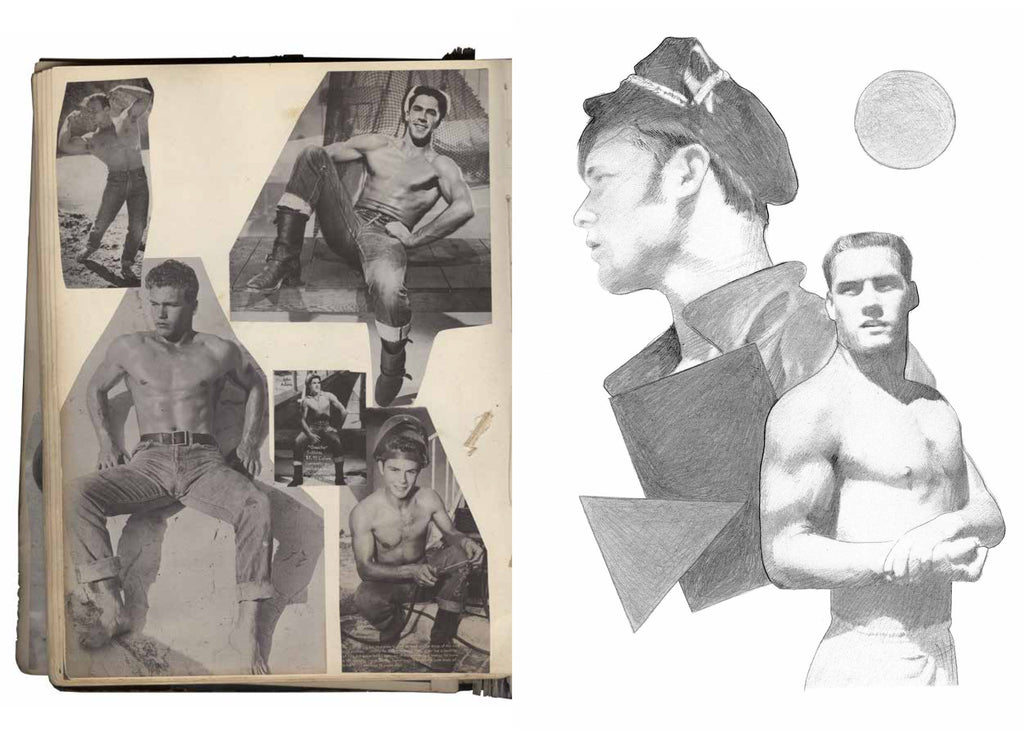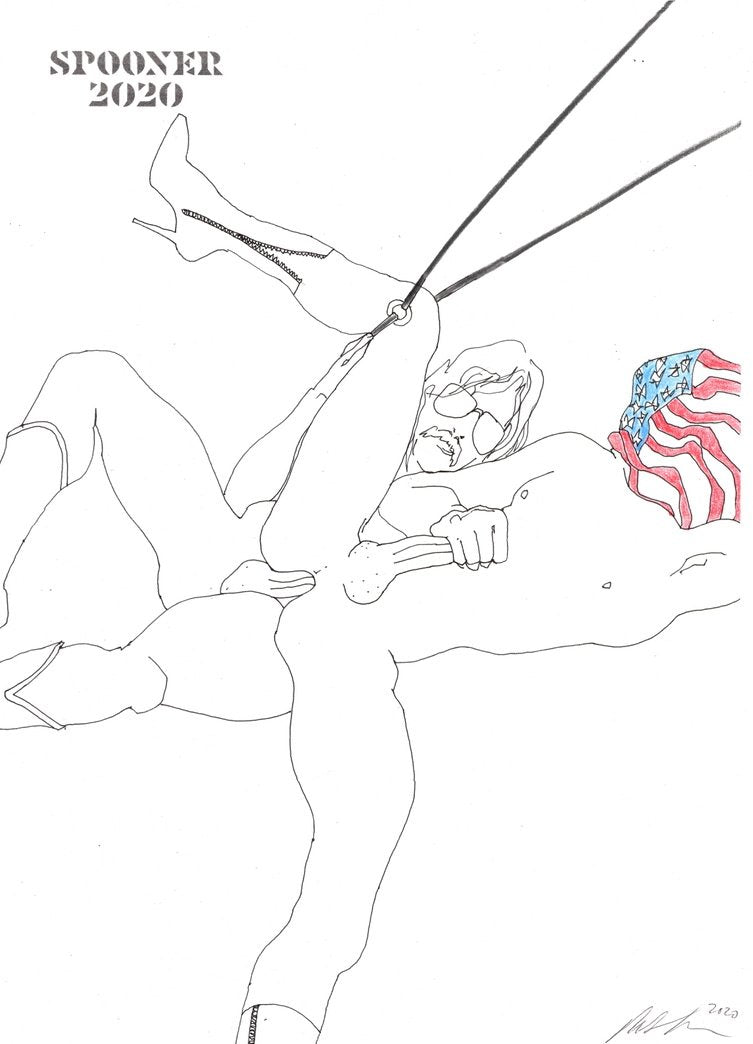Congratulations on the upcoming release of your book, TOM! Can you tell me about the focus of the book?
I wanted to do something really poetic and smooth, somehow mature and virtuous. So my focus was Tom’s scrapbooks and colleges so that I could discover through this material another layer of Tom’s work.
Did you discover anything surprising or new about Tom with this project?
Not really surprising, but very revealing… I found a lot of emotion in his collages, they are a huge part of Tom’s identity as an artist. Tom would not choose his topics randomly, neither his men… He would have an extremely meticulous method to find the right type of man or the right scene…and that connects my work to his deeply. I found myself in Tom many times.

One of the essays in the book mentions that you feel you were "socialized as a fag". Can you tell me more about this sentiment?
As a teenager and during my university years I would go all the time clubbing with gay boys. That was the time of acid house and early house music. Dance culture and gay subculture began altering the pop-like disco dance tracks to give them a deeper sound. In that moment I knew I was connecting way more with gay boys and I was barely interested in what girls my age would listen to. I was also very interested in all fashion related with this culture. That was the time of Gaultier Junior amazing collections. My style and the way I dressed was 100% inspired by club culture.
Wow, sounds like an incredible time! How did this period and gay culture in general inspire your life and work?
Everything about gay culture inspires me, especially gay subculture. Whenever I want to start a project my main research consists in looking back to what was said in the past and I take those pieces to give them a sense in the present. There’s a lot that has been said that need to have the right place in the present times.

Can you elaborate on this technique of "looking back to what was said in the past”? How does this come about in your work?
I consider Pop culture and Gay culture to be the same. I think Pop culture was way more sophisticated in the past: 70’s 80’s and 90’s because there was more struggle, more trauma,. Identities were more complex, more real. In this present times, pop icons are in my opinion, somehow prefabricated. I watched recently a documentary about George Michael, I was so attracted to his image and music when i was a teen, by his look, image, music, his gayness. That’s what I am talking about. Behind his work there is a huge struggle and a fight that he turned into a very special identity. I feel the same with Madonna’s Sex book. That book was created during a relevant era. Opening that book released a lot of feelings of freedom in many young people from my generation.
So looking back to those times, and further times, - like Tom’s times, which can also be related to struggle - my research is focused on images that are really powerful in that sense, and my response to that is to isolate those moments to make a statement.
How did you first come across Tom? What about his life and work drew you to him?
I was subscribed to Interview Magazine since the 80s. As a student I didn’t have much money but I remember the moment I sent over the mail that beautiful subscribers card. I remember that article about Tom’s work in one of the issues. I was aware of Bob Mizer publications too… as a Fine Arts student I made a research about Physique Pictorial and Tom. What I think was really interesting about his life was the way he managed to go through all his life, the army, the war and turn all that struggle into art.
Speaking of struggle, how does your position as a gay woman influence your depictions of gay sexuality and the male body?
For me bodies are not defining anything, specially right now. Anatomy and organs have nothing to do with sexuality.

But do you feel you have a different take on the Tom world and male sexuality as a result of your positionality as a woman? And if so, how would you characterize those differences?
Sure, my take is not as sexualized, it’s more focused in something more emotional or erotic.
Has your work generated any resistance or even misogyny from the gay community? Have there been any challenges involved in staking a creative claim on gay culture as a theoretical outsider?
Unfortunately, being gay does not always mean being open minded, articulated, smart or creative. It is all about culture and education. Many gays are racists, ageists, and misogynists, but same as many straight people. Being a woman is always difficult, especially when you don’t “behave” or express yourself the way you’re supposed to or your work is not expressed as expected. I remember having a conversation with someone about Tom’s book, a gay man. He said “ How can a woman do that? That’s impossible”
Yes, it seems like women’s role in defining and supporting gay culture is all too often ignored. What other artists - gay or otherwise - have inspired your work?
Bob Mizer, Cole Porter, Antonio Lopez, George Quaintance, Dennis Cooper, John Jack Baylin, Harry Bush...

Who today do you think embodies the spirit of Tom?
I think that’s really difficult. The landscape is different right now, that passion is impossible to replicate.
But does anyone come close?
With all due caution, maybe Japanese artist Jiraiya also represents utopic gachimuchi men in a Japanese society where gay men are not really accepted; but I think Tom of Finland should be considered one of the biggest artists of the last century for many reasons.
TOM by Silvia Prada is published by Capricious


